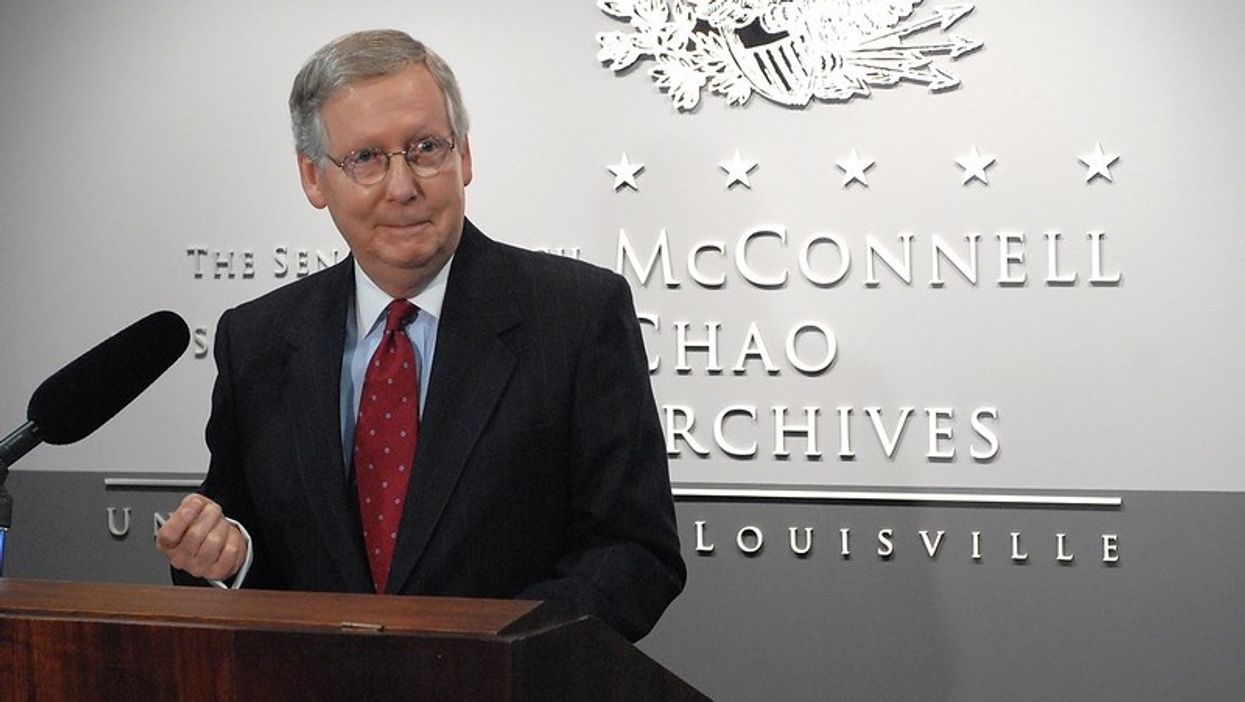McConnell’s Scheme To Protect Corporations From Covid-19 Liability May Fail

Senate Majority Leader Mitch McConnell (R-KY)
Reprinted with permission from DCReport
The landmark Supreme Court decision that upheld most of the Affordable Care Act could help doom efforts by Trump Republicans to shield companies from COVID-19 lawsuits.
Senate Majority Leader Mitch McConnell (R-Ky.) wants to give companies that reopen during the pandemic immunity from liability. Such a law, which would supersede state liability laws, could run afoul of the Commerce Clause.
The clause is the part of the Constitution that gives Congress the authority "to regulate commerce with foreign nations, and among the several states."
"The heady days when Congress could justify virtually any legislation under the Commerce Clause are gone," Georgetown University law professor David Vladeck told the Senate Judiciary Committee.
Constitutional scholars have sparred about the clause for centuries, citing authorities such as the 1785 edition of Samuel Johnson's dictionary and an 1824 case about steamboat routes.
For almost six decades, justices liberally interpreted the Commerce Clause to expand government powers, starting with a 1937 New Deal case after President Franklin Roosevelt threatened to pack the court. Civil rights advocates used the Commerce Clause to remove economic obstacles based on racisim.
More than 1,300 coronavirus complaints had been filed by late May, according to the law firm Hunton Andrews Kurth. Twenty-six of those cases, or less than 2 percent, are employment cases about exposure to the coronavirus at work. The largest share of the cases – 389, or about 29 percent — are lawsuits filed by prisoners.
States Already Shielding Companies
A few states, including Utah and North Carolina, have passed laws to shield businesses. Alabama, Illinois, Louisiana, Ohio, South Carolina and Wyoming have introduced bills to shield businesses other than healthcare facilities, according to the National Conference of State Legislatures.
"Liability protections come at a cost, and the cost is to employers, customers and public at large, because if a business has no incentive to guard against these kinds of harms, safety becomes the more expensive and less competitive option," said attorney Max Kennerly.
Workers' compensation laws, state laws that give workers a way to get compensation without a liability finding, protect employers from most claims for monetary damages. Courts have yet to decide whether coronavirus is covered by workers' compensation laws.
Commerce Clause Clipped
In 1995, the liberal interpretation of the Commerce Clause ended when the Supreme Court in U.S. v. Lopez struck down a federal law that banned possession of guns within 1,000 feet of a school. Chief Justice William Rehnquist wrote that the Commerce Clause could not support a ban on guns near schools and playgrounds even though gun sales often involve interstate transactions.
In the 2012 Supreme Court case that upheld the Affordable Care Act, Chief Justice John Roberts joined the four liberals on the court to uphold most of the act. But Roberts also concluded that the individual mandate, the requirement that everyone have health insurance, wasn't valid under the Commerce Clause.
"Congress has never attempted to rely on that power to compel individuals not engaged in commerce to purchase an unwanted product," he wrote.








